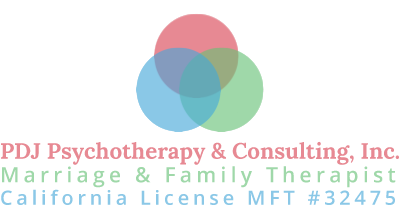“Stay at Home” order: 5 Steps to Help Couples Struggling to Work Alongside Partner All Day.
Effective communication is the key to any relationship, especially under this crisis of a “Stay at Home” order. This order has temporarily eliminated activities that allow us to take care of ourselves, including the ability to leave home and go to a workplace. Some couples are struggling to work right alongside their partner all day. We may be left grappling with emotionally challenging issues that have never occurred. Even in the best of relationships, this can impose a strain on the relationship.
When couples utilize effective communication techniques, they can set boundaries, relate to each other in empathic ways without attacking and/or defending, and negotiate the difficulties they may experience during this time.
- Improve communication skills:
Use “I” statements instead of “You” statements. When individuals become angry, disagreements and arguments escalate because they feel attacked. Attacking and/or defending increases miscommunication because the partners respond by re-attack or defense. This usually is displayed in blaming each other and “finger-pointing” which comes in the form of a “You” statements, i.e., “You’re telling me what to do!,” “You’re not listening to me!,” “You’re telling me how to do my job!,” “Don’t tell me how to do my job!” Instead, “I” statements are easier to be heard by your partner and more effective in expressing your needs, i.e., “I felt disrespected when I heard “You are doing it wrong,” “I felt sad when it seemed I wasn’t listening to you.”
- Employ active or reflective listening:
When in an argument or disagreement, each partner is invested in getting their point across, rather than listening, hearing, and attempting to understand their partner. Active or reflective listening can be achieved by repeating back to your partner what you hear them saying, not what you want them to say or think they should say.
- Set boundaries:
Discuss with your partner REALISTIC expectations. Set times, places, and spaces for your work and let your partner know your needs, i.e., “I need quiet from 2-3p.m. in order to write, research, make phone calls, etc.;” “I need to go outside for at least a 30 minutes to clear my head.” Asking for space does not mean, “I don’t love you.” Also, remember, you are equal partners; one is not the other’s servant.
- Relate to each other empathically:
With uncertainty comes fear! The American Psychological Association defines fear in part as:
n. a basic, intense emotion aroused by the detection of imminent threat, involving an immediate alarm reaction that mobilizes the organism by triggering a set of physiological changes. These include rapid heartbeat, redirection of blood flow away from the periphery toward the gut, tensing of the muscles, and a general mobilization of the organism to take action (see fear response; fight-or-flight response).
In these uncertain times we are all facing the unknown. Acknowledge your own fear and then talk with your partner about how they are feeling. Also, identify and acknowledge inaccurate thoughts that intensify anxious feelings, i.e., “My partner thinks less of me because I lost my job and I’m at home all the time,” “I am a burden now that I have to be home and cannot go to work,” “I don’t feel productive enough.”
5. Take care of yourself:
Individuals sometimes have difficulty experiencing and expressing anger due to what Murray Bowen, M.D. calls Nuclear Family Emotional Process and Dysfunctional Transgenerational Patterns. Simply stated, based on our own experience in our families, we tend to display our anger in ways that may be counterproductive to ourselves as well as our partners based on how anger was managed in our families; thus, making it difficult to negotiate arguments and disagreements in current relationships.
Anger is an emotion and one’s feelings of anger are real and valid. Anger is an emotion, not a behavior. It is what one does (how they behave) with their anger that makes the difference. It is okay to be angry with the ones who are dearest to us. Anger is not an excuse for aggression or violence. Acknowledging your own anger and the more vulnerable, underlying feelings such as fear, sadness, loneliness, isolation, inadequacy, allows for each partner to disengage from each other in order to resolve disagreements in a manner more productive for both.
This article is intended to offer general information only and individual issues and needs may differ from these broad guidelines. Personal issues should be addressed within a therapeutic context with a professional. ©2020 PDJ Psychotherapy & Consulting, Inc.

